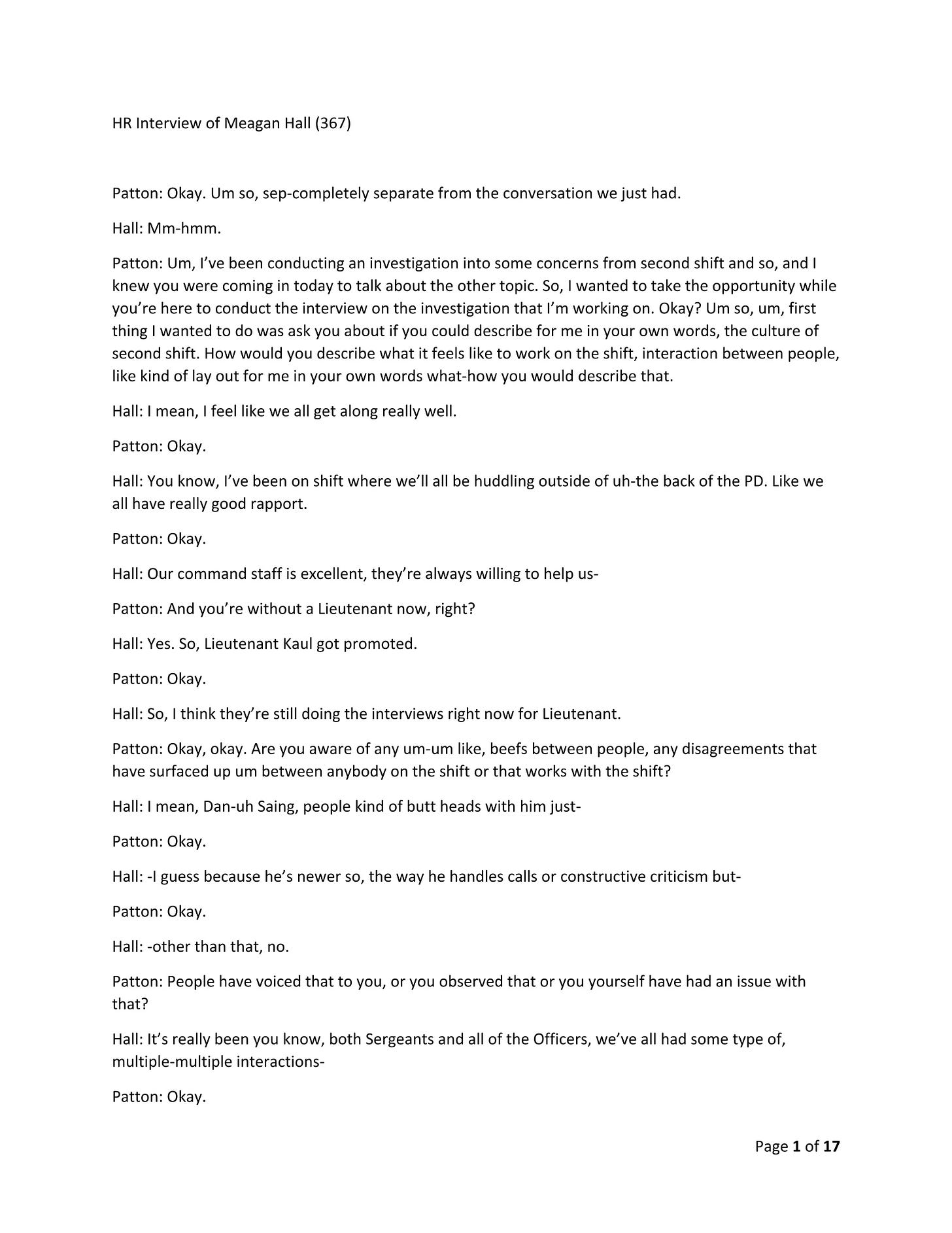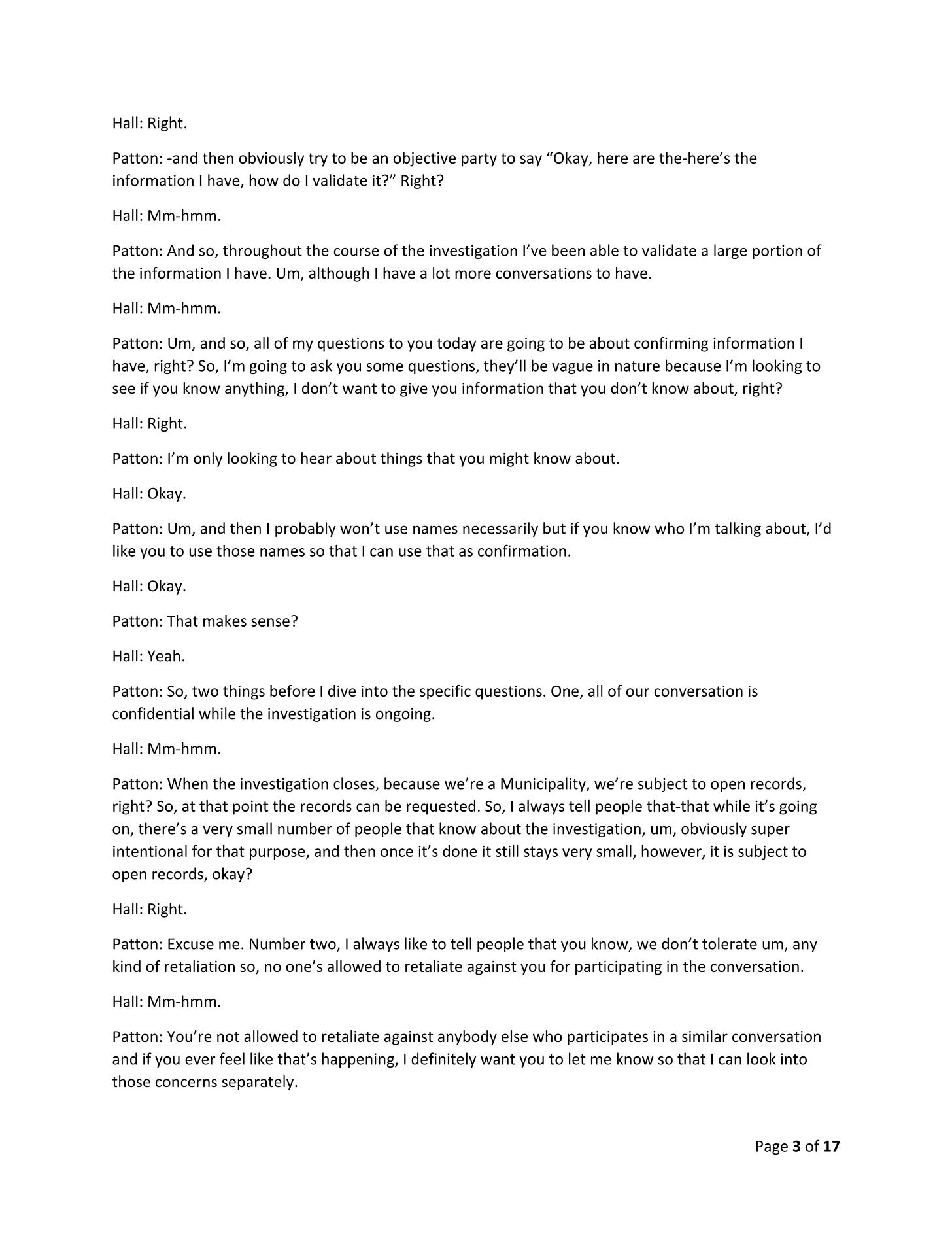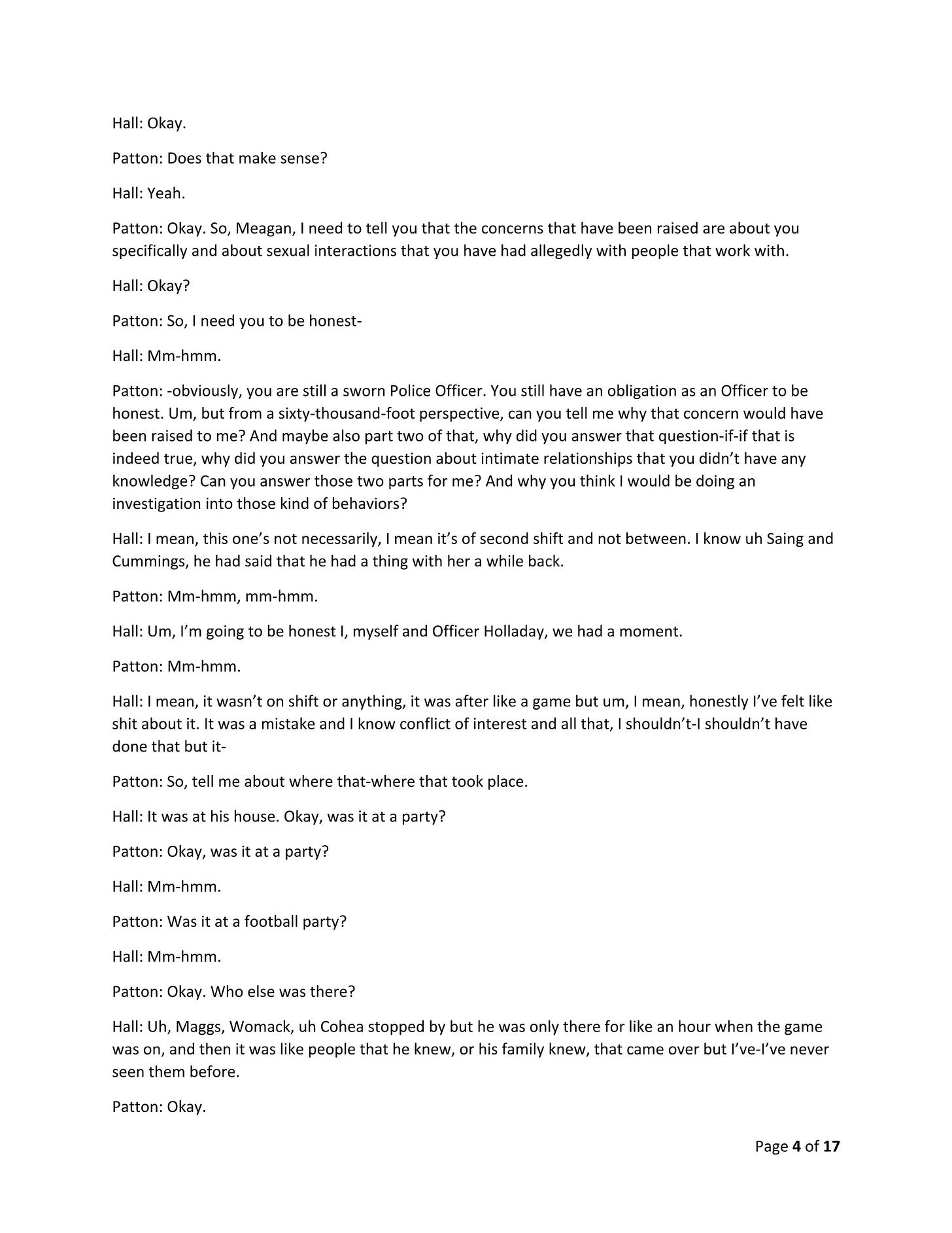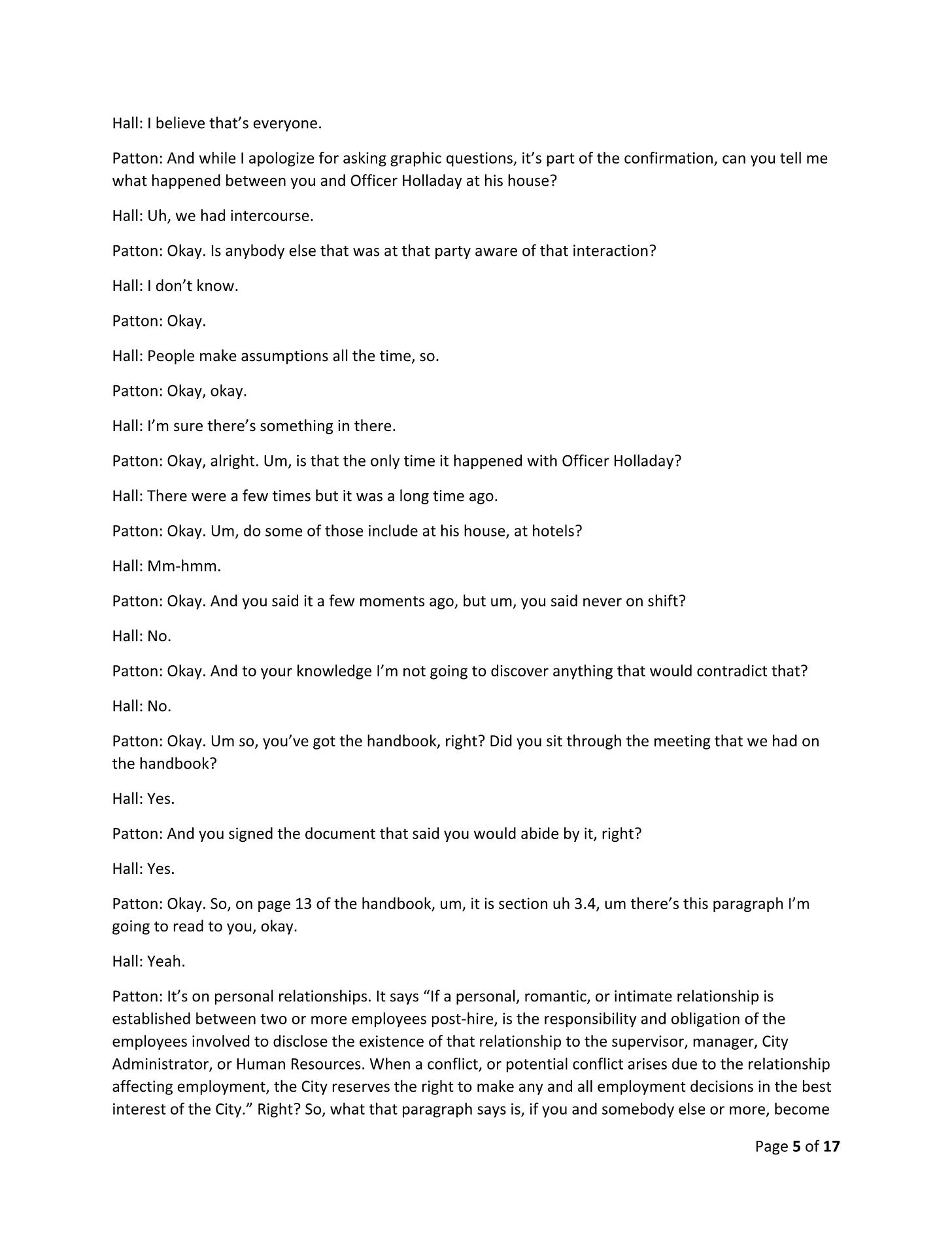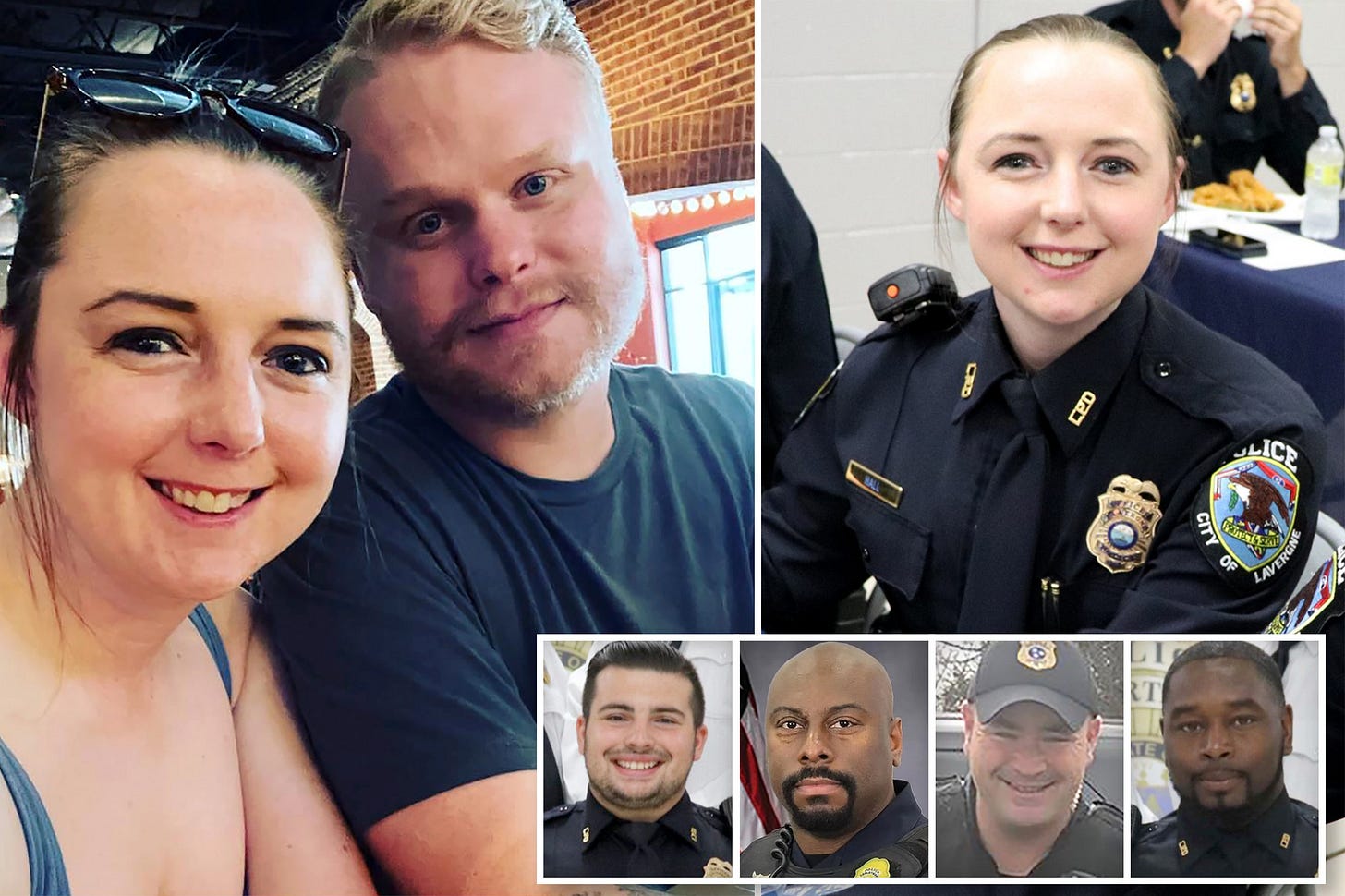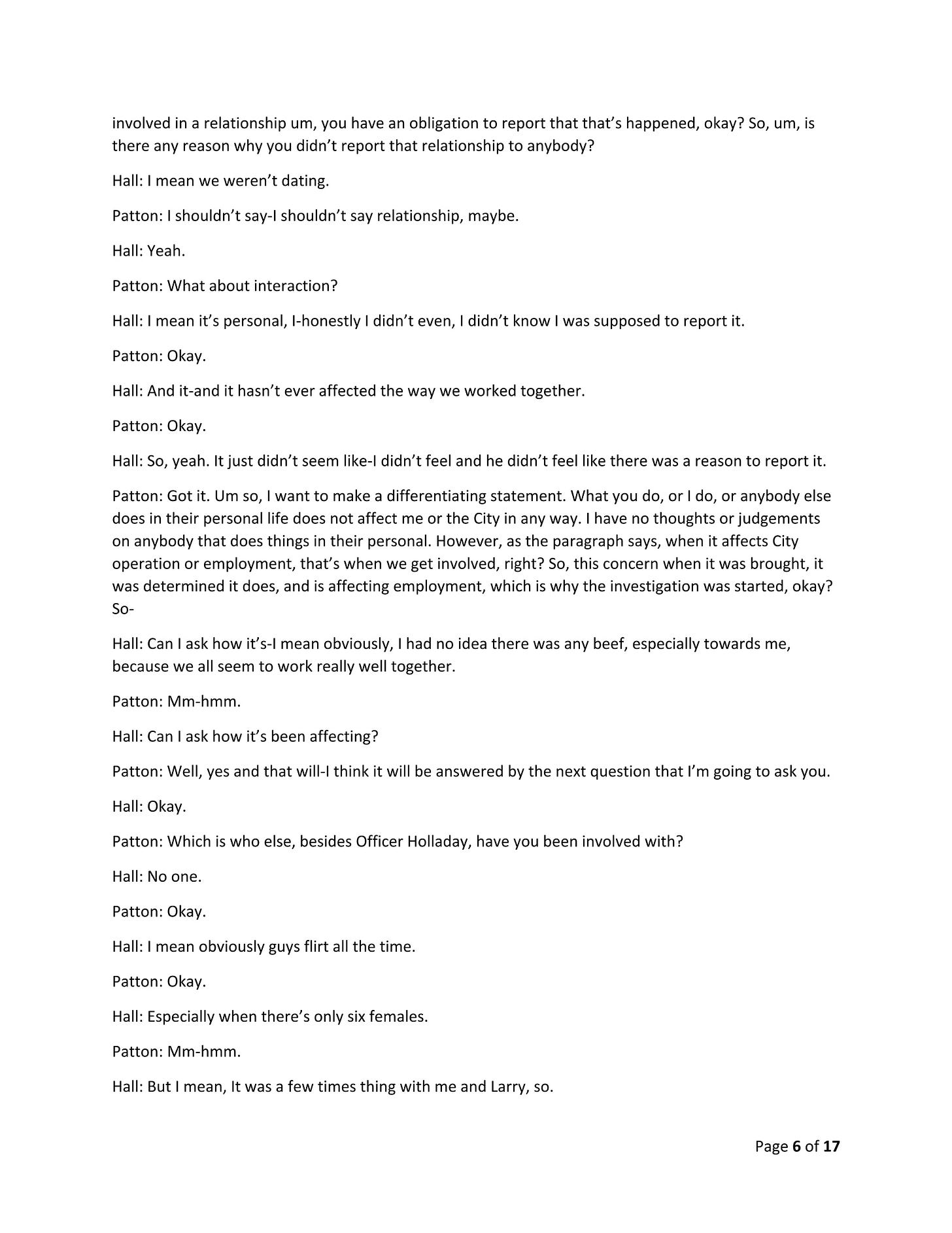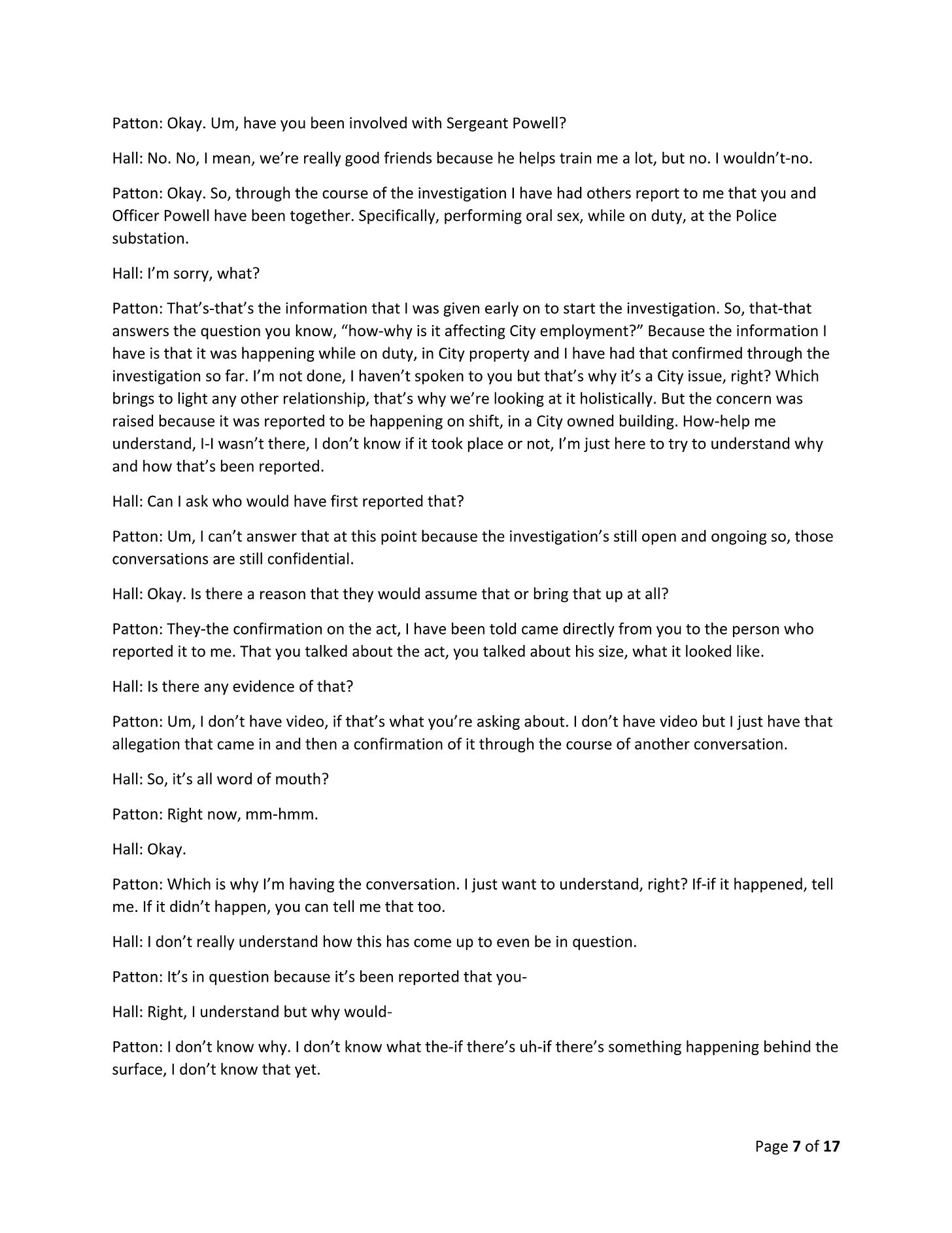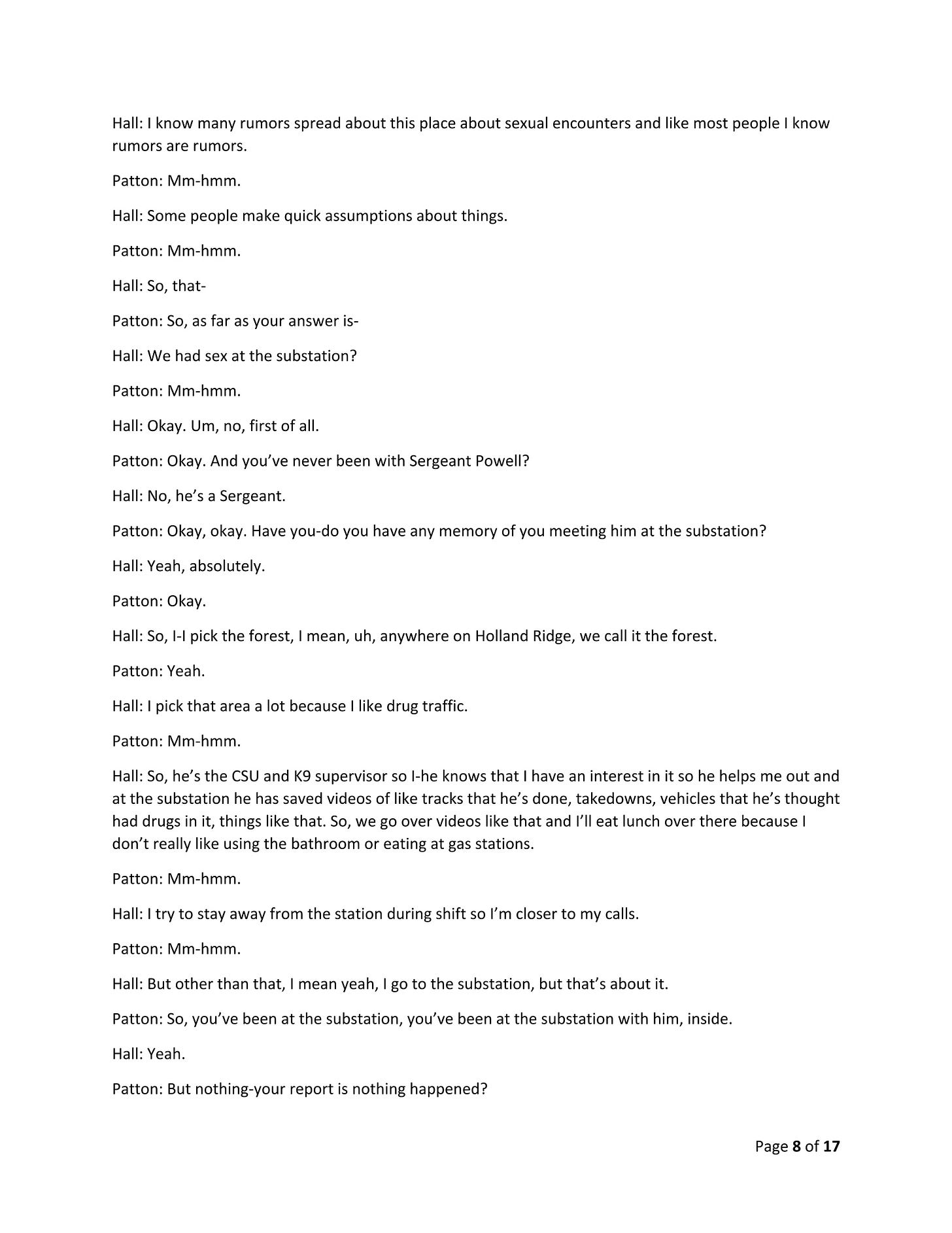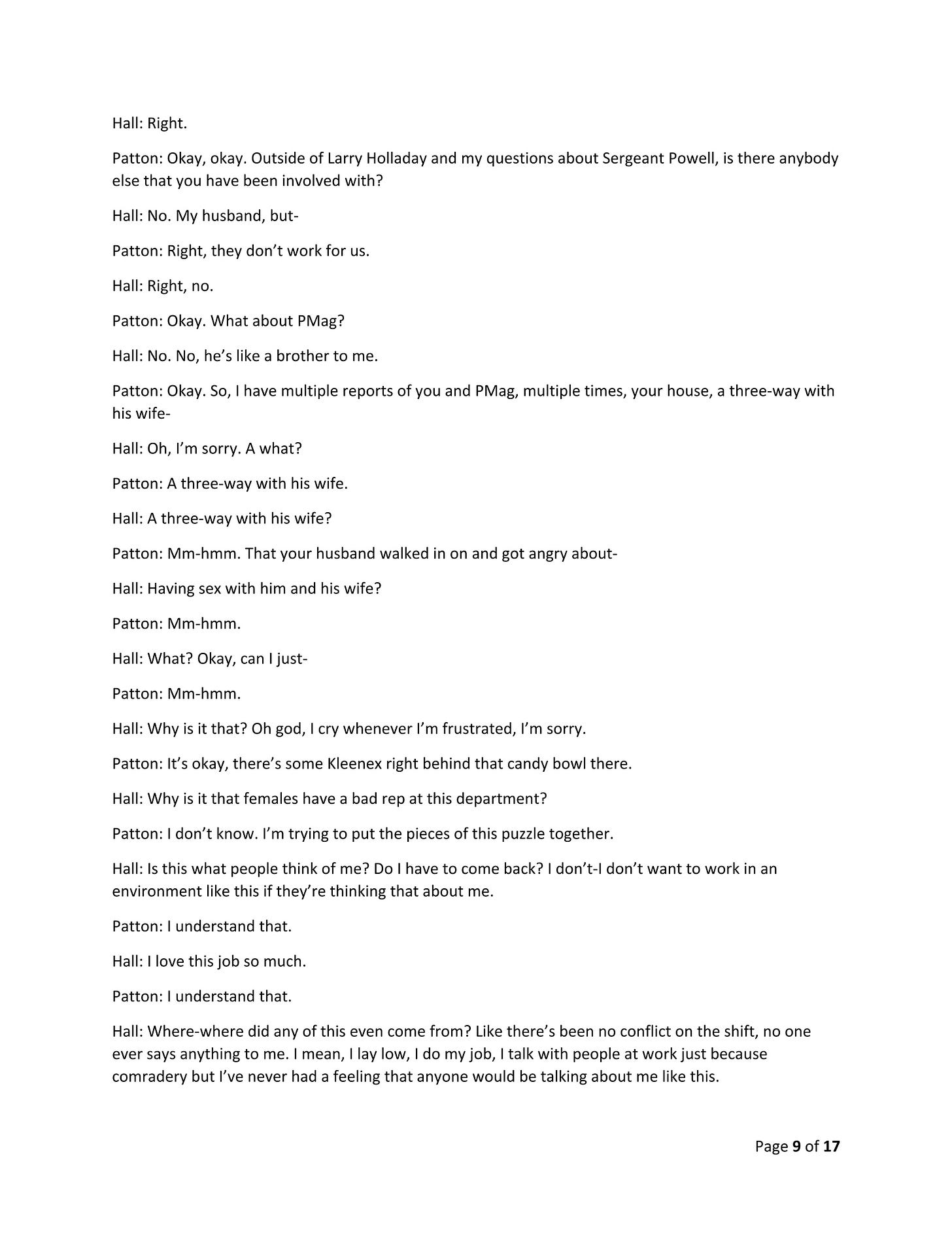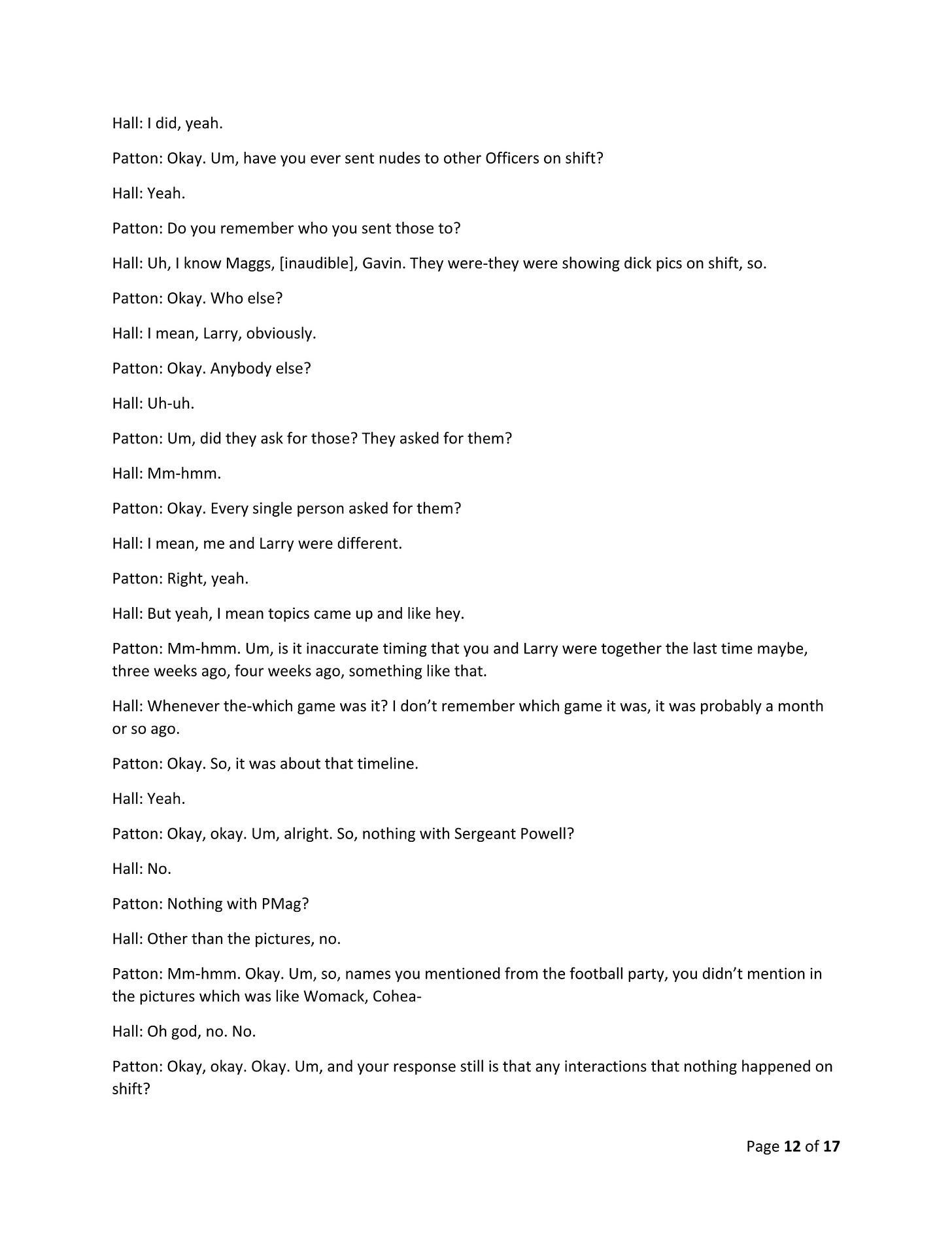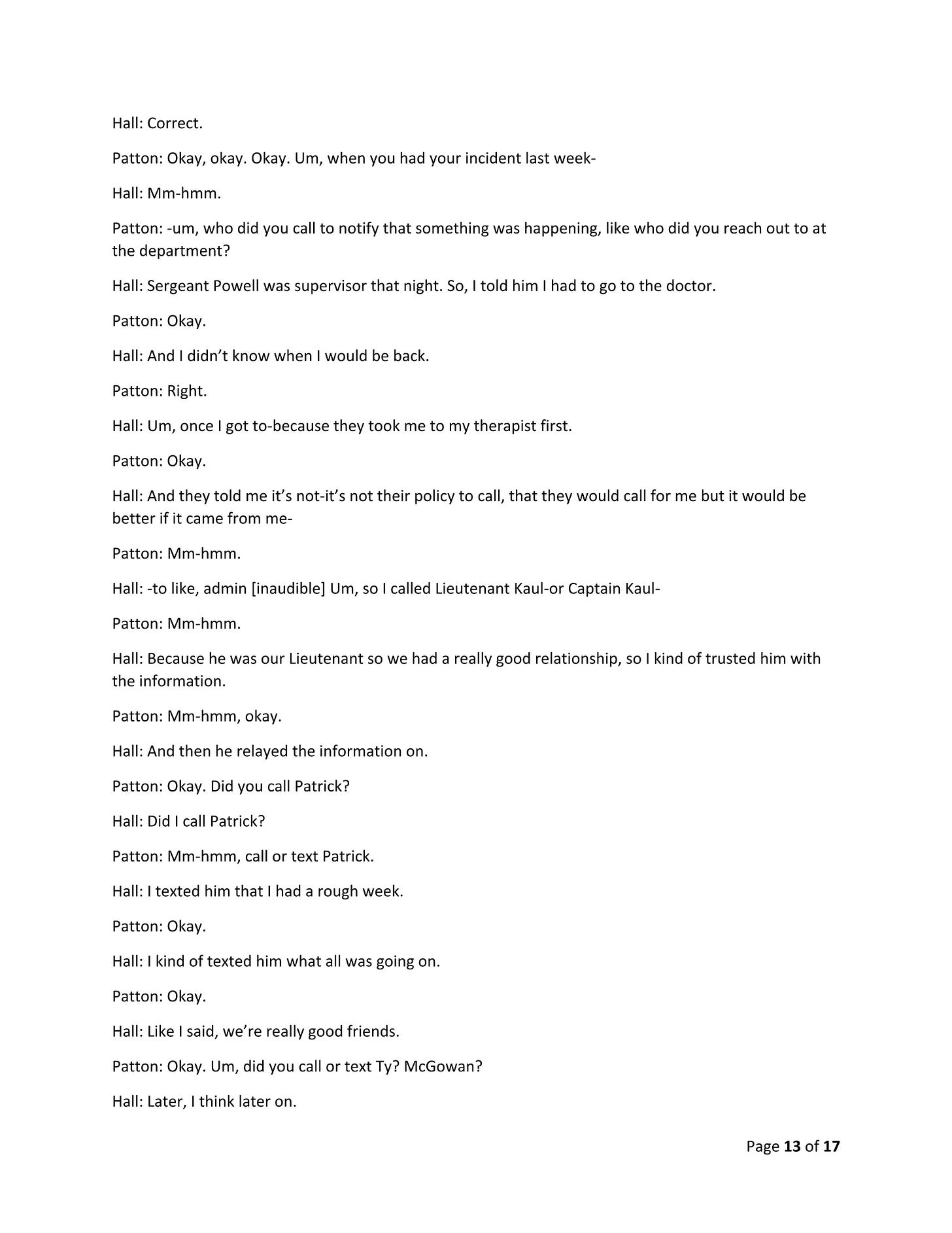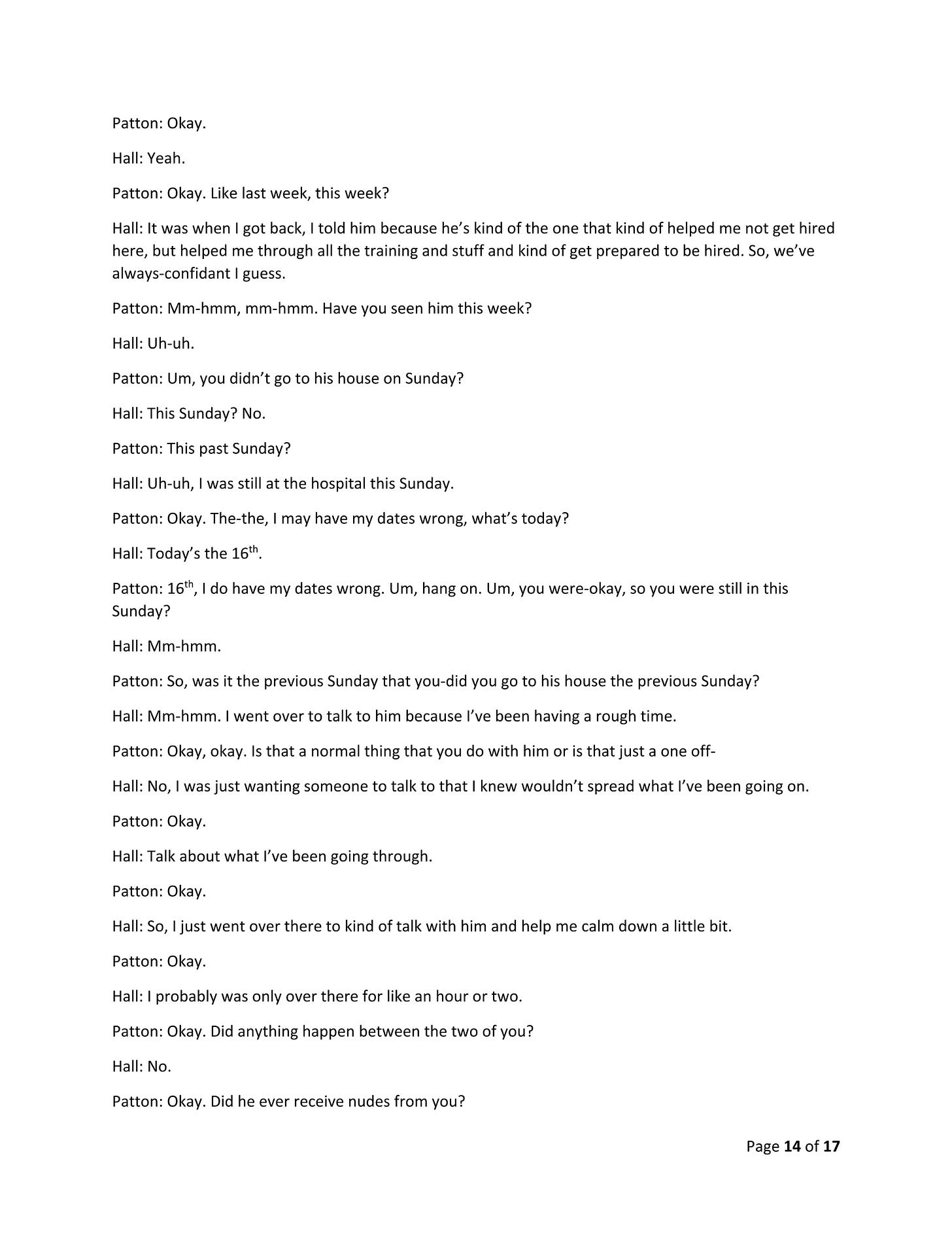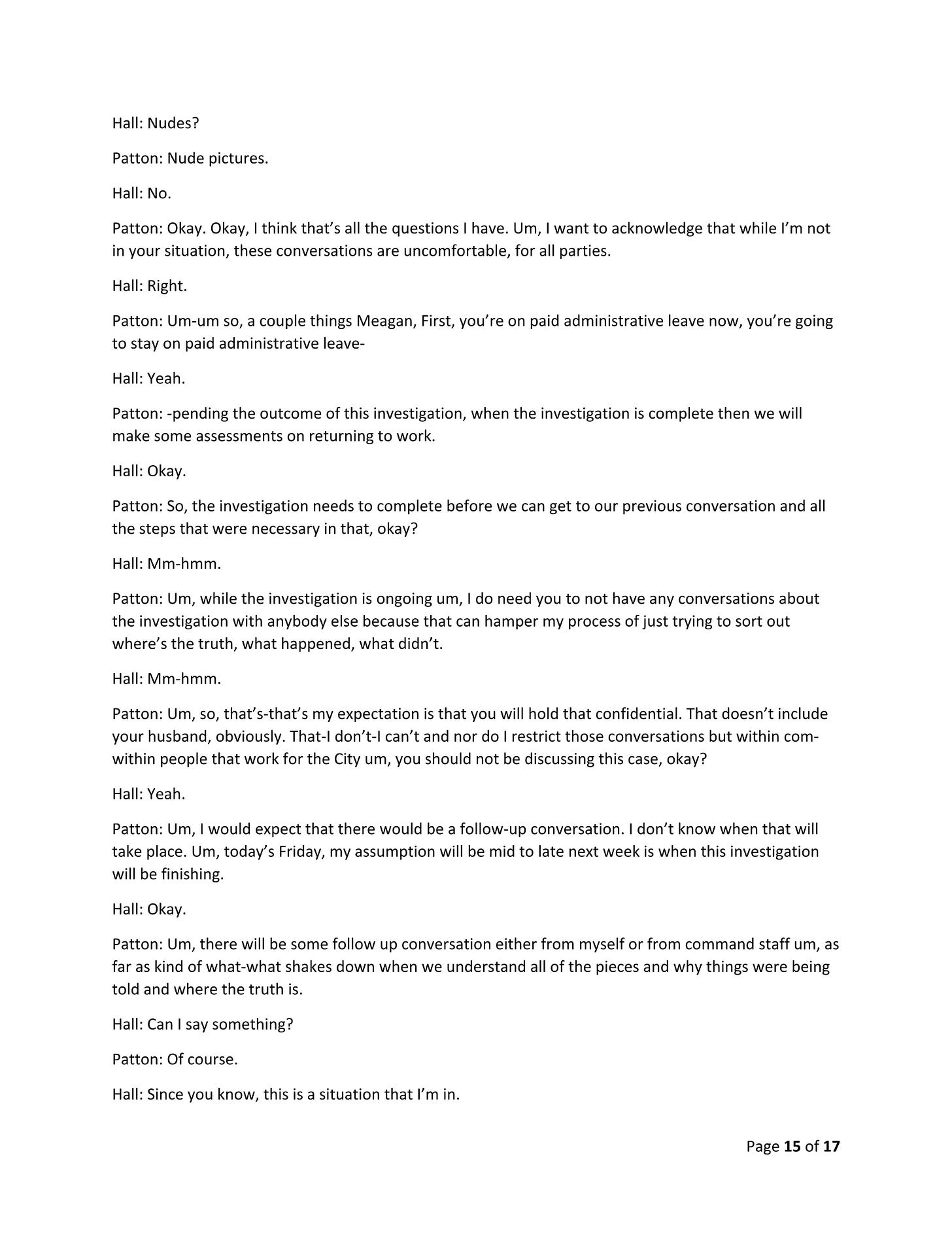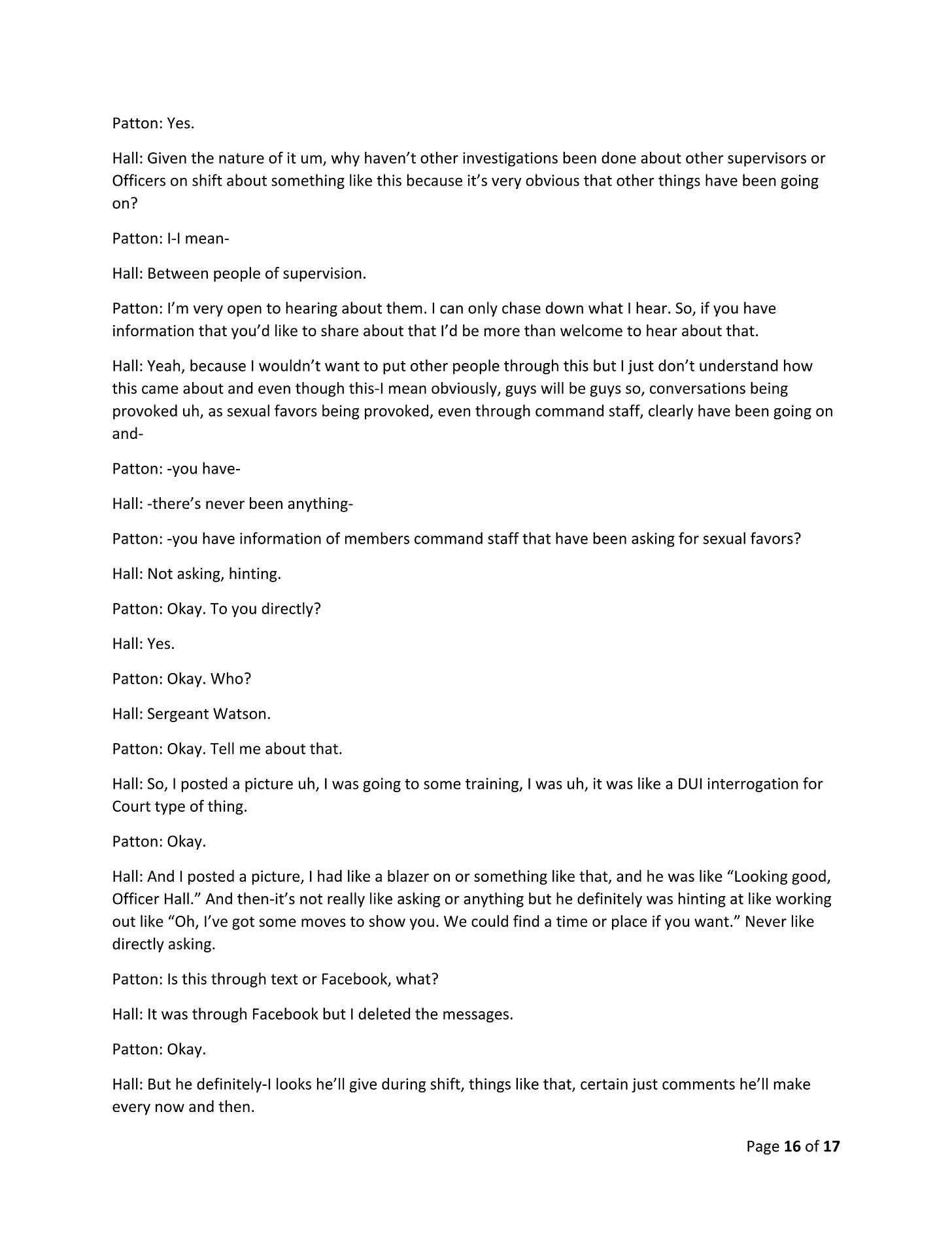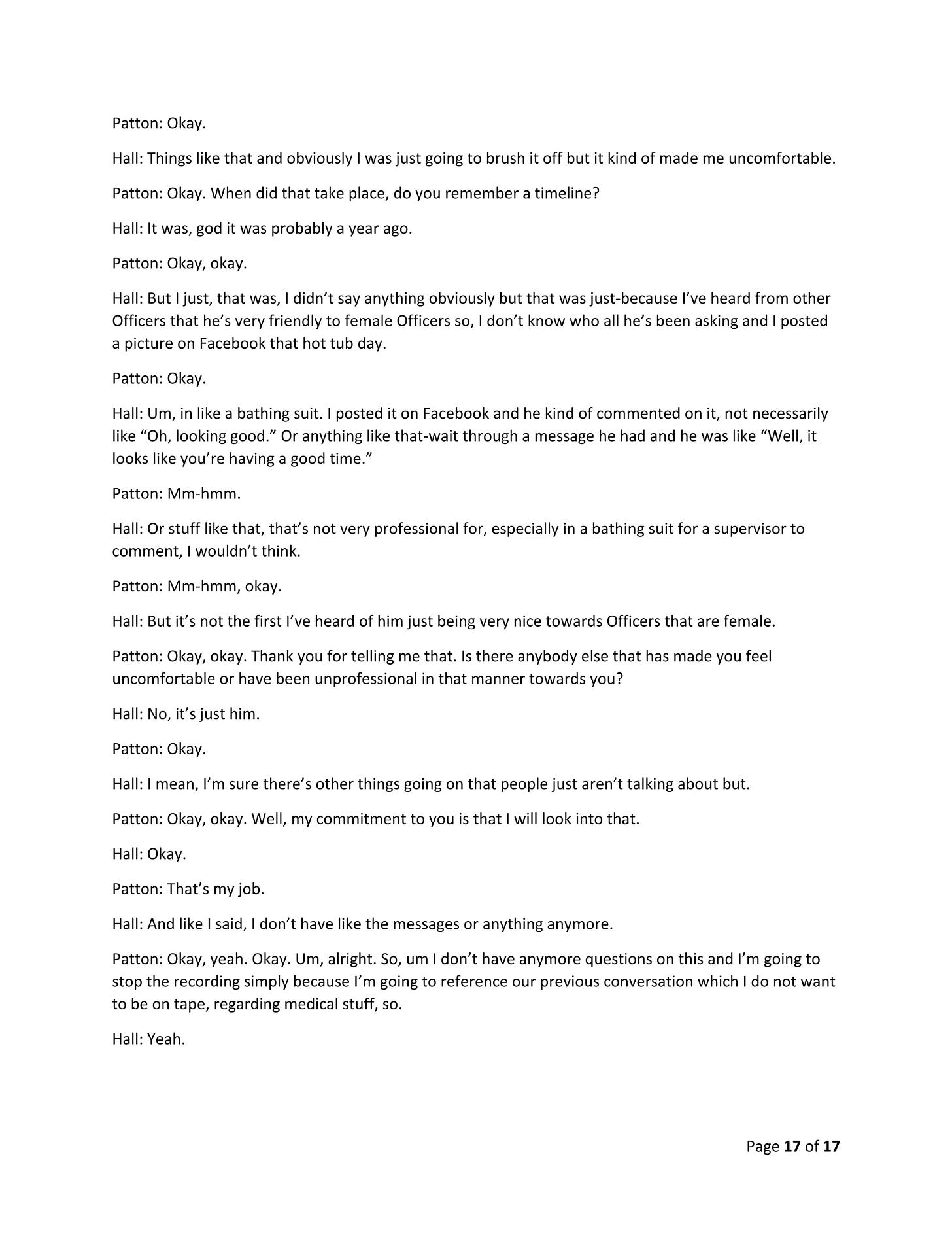LA VERGNE, TN. POLICE DEPARTMENT- THE INVESTIGATION INTERVIEW TRANSCRIPTS
Maegan Hall- Part 1- Informing Her About The Investigation & Her First Interview
THINGS TO KNOW…
In an internal investigation at a law enforcement agency, there are certain procedures that should be followed. First among them, are advising the suspect officer of their Garrity Rights.
While the exact wording of the Garrity Rights may slightly differ from agency to agency, the basic meaning is the exact same…If the officer is being ordered to answer questions, then nothing he/she says, nor the fruit that may result from it, can be used against them in a criminal case.
Where Did Garrity Originate?
Garrity sprung from a U.S. Court decision that pitted a New Jersey police chief against the state’s attorney general. In 1961, the New Jersey AG started looking into accusations that traffic tickets were being fixed in Bellmawr and Barrington. The pending inquiry locked on Bellmawr’s police chief, Edward Garrity, and five of his employees. When interrogated, each was told that what they said might be turned against them in criminal proceedings. They were also notified that if they declined to answer, they would be fired. Instead of risking their jobs, the men talked, and their accounts were used in their prosecutions.
SCOTUS (The Supreme Court of the United States) ruled the workers” statements were compelled by the state in violation of the Constitution’s Fifth and Fourteenth Amendments. As the employees’ statements were mandated, it was unconstitutional to use them in a prosecution, and the convictions were thrown out.
DESPITE HOW MUCH IT PISSES OF THE LEFT, POLICE
OFFICERS HAVE RIGHTS, ALSO.
The most important thing for officers to know about Garrity, is that it does not automatically apply. If the investigator does not provide an officers’ Garrity Rights to them at the beginning of an interview, THE OFFICER MUST INVOKE, OR ASK FOR, THE PROTECTION OF GARRITY.
It is now common practice to provide an officer their Garrity Rights on a specific document, which the officer signs to invoke those rights.
IF an agency does not provide an officer with their Garrity Rights BEFORE the interview starts, officers are counseled to write these words at the beginning of their statement, or, if the statement is a recorded verbal statement only, then to say these words:
Garrity Statement
On_________ (date/time) at ________________ (place), I was ordered to give this statement (report) by ____________________ (name/rank). I give this Statement (report) at his/her order as a condition of employment. I understand that I may face disciplinary action for disobeying this order so I have no alternative but to abide by the order. It is my belief and understanding that the Department requires this statement (report) solely and exclusively for internal purposes and will not release it to any other person or agency. It is my further belief that this statement (report) will not and cannot be used against me in any criminal proceedings. For any and all other purposes, I hereby reserve my rights as provided by the United States Constitution and any other rights prescribed by law. Further, I rely specifically upon the protection afforded me under Garrity Vs. New Jersey 385 U.S. 439 (1967).
The form is then signed and dated by the official executing the paperwork, the individual requesting Garrity protection, and a witness.
The person conducting the interview is Andrew Patton, the HR Director of the City of La Vergne. He and Maegan had met to discuss some sick time she had used, she was unaware that he was also going to question her about this investigation.
Notice that, at no time, did he advise her of her Garrity Rights, nor did she ask for them. I’m sure this will come up during her lawsuit.
Don’t miss the second interview with Maegan coming up in the next post!!






